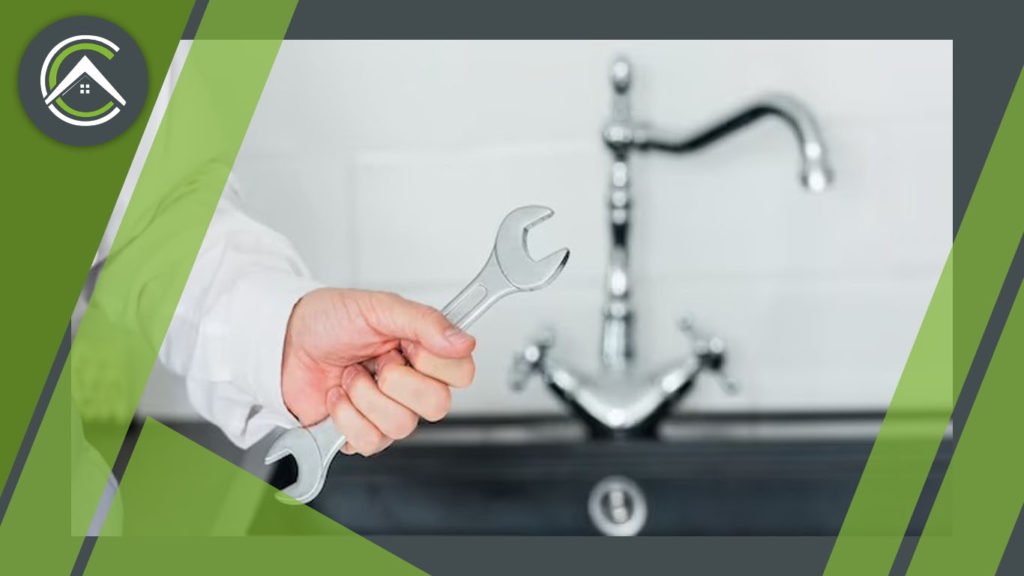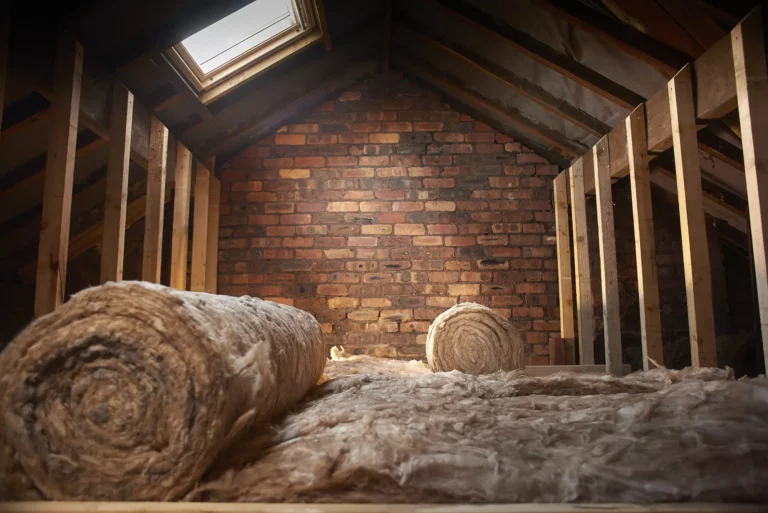Plumbing problems can disrupt your daily routine and lead to expensive repairs if not addressed promptly. From leaky pipes and clogged drains to water heater failures and frozen plumbing, homeowners often face a variety of plumbing issues that can cause water damage, mold growth, and higher utility bills. While some minor problems can be fixed with DIY solutions, others require professional assistance to prevent long-term damage.
One often-overlooked factor that affects plumbing efficiency is home insulation. Poor insulation can make pipes vulnerable to freezing, condensation buildup, and inefficiencies in your water heating system. The good news is that insulation rebates can help you upgrade your home while protecting your plumbing system.
In this article, we’ll explore the 10 most common plumbing issues, how to fix them, and how proper insulation can prevent many of these problems. If you’re looking for expert assistance, Confirmed Contracting Corporation offers professional plumbing and insulation solutions to keep your home safe and efficient.
How Small Plumbing Issues Can Lead to Bigger Problems
Many homeowners tend to ignore minor plumbing issues, assuming they are harmless. However, what seems like a small inconvenience today can quickly turn into a costly disaster. A dripping faucet, a slow drain, or a running toilet may not seem urgent, but over time, these issues can escalate, leading to higher utility bills, water damage, and even structural problems in your home.
Here’s how small plumbing issues can cause bigger problems if left unchecked:
- Increased Water Bills – A single dripping faucet can waste up to 3,000 gallons of water per year, leading to unnecessary expenses.
- Water Damage – Even minor leaks can seep into walls and flooring, causing mold growth, wood rot, and weakened structural integrity.
- Pipe Corrosion – Small leaks can lead to excessive moisture buildup, accelerating pipe corrosion and increasing the risk of major pipe bursts.
- Reduced Water Pressure – A neglected slow leak can lead to blockages or air pockets in pipes, resulting in inconsistent water pressure throughout your home.
- Mold and Mildew Growth – Damp areas caused by unnoticed leaks create the perfect environment for mold, which can lead to respiratory issues and costly remediation.
Ignoring small plumbing issues can turn a simple fix into an expensive repair. If you suspect any minor plumbing problems, it’s best to address them early before they escalate.
DIY Fixes vs. When to Call a Professional Plumber
Plumbing problems can range from minor annoyances to major emergencies. While some issues can be fixed with simple DIY methods, others require the expertise of a professional plumber to prevent costly damage. Knowing the difference between a DIY fix and a professional repair can save you time, money, and frustration.
When You Can Try DIY Fixes:
Some minor plumbing problems can be handled with basic tools and a little know-how, including:
- Clogged Drains – Using a plunger or a drain snake can help clear minor blockages caused by hair or debris.
- Dripping Faucets – Replacing a worn-out washer or O-ring can often stop a small leak.
- Running Toilets – Adjusting or replacing the flapper valve is a simple fix for most running toilet issues.
- Low Water Pressure – Cleaning the aerators on your faucets and showerheads can remove mineral buildup and restore normal flow.
When You Should Call a Professional:
If a plumbing issue is complex, recurring, or causing damage, it’s best to seek expert help:
- Persistent Leaks – Small leaks can indicate bigger pipe issues and lead to mold or water damage.
- Sewer Line Blockages – Slow-draining water in multiple fixtures might mean a deeper plumbing issue requiring professional tools.
- No Hot Water – If your water heater stops working or has leaks, it could need repairs or replacement.
- Pipe Bursts or Frozen Pipes – These require immediate professional attention to prevent major water damage.
Ignoring serious plumbing problems can lead to high water bills, property damage, and even health hazards from mold or bacteria buildup.
📢 Facing a plumbing issue? Contact Confirmed Contracting Corporation for expert diagnosis and long-term solutions!
How to Prevent Common Plumbing Issues Before They Happen
Plumbing problems can be frustrating, expensive, and even damaging to your home. However, with regular maintenance and a few preventative measures, you can avoid many common issues before they escalate into costly repairs. Here’s how you can keep your plumbing system in top shape:
1. Schedule Regular Inspections
- Have a professional inspect your plumbing system at least once a year to catch small issues early.
- Check for leaks under sinks, around toilets, and near appliances like washing machines and water heaters.
2. Maintain Your Drains
- Avoid pouring grease, coffee grounds, or food scraps down the drain.
- Use drain covers to catch hair and debris in sinks and showers.
- Flush drains monthly with a mixture of hot water, baking soda, and vinegar to prevent buildup.
3. Protect Your Pipes
- Insulate exposed pipes to prevent freezing and bursting in winter.
- Fix small leaks immediately before they worsen and cause water damage.
- Monitor your water pressure—too high can strain pipes and lead to leaks.
4. Take Care of Your Water Heater
- Flush the water heater tank annually to remove sediment buildup.
- Inspect for rust, leaks, or reduced efficiency and replace if necessary.
5. Invest in a Home Energy Audit
A home energy audit can identify insulation gaps, water wastage, and inefficiencies in your plumbing system, helping you save on bills and prevent problems before they arise.
By following these simple preventative measures, you can extend the lifespan of your plumbing system, reduce repair costs, and maintain a healthy home environment.

The Impact of Plumbing Problems on Your Water Bill
Even minor plumbing issues can lead to significant increases in your monthly water bill. A small leak or running toilet may seem harmless, but over time, these problems waste gallons of water and cost you money. Here’s how plumbing issues can impact your bill:
- Dripping Faucets – Can waste up to 3,000 gallons per year, increasing costs.
- Running Toilets – A single running toilet can waste 200+ gallons per day.
- Hidden Leaks – Undetected pipe leaks lead to continuous water loss and property damage.
- Inefficient Water Heaters – Sediment buildup forces heaters to work harder, raising energy bills.📢 Lower your water bill with expert plumbing solutions! Contact Confirmed Contracting Corporation today.
How Insulation and Air Sealing Can Protect Your Pipes
Proper insulation and air sealing play a crucial role in preventing plumbing issues and ensuring your home’s efficiency. When pipes are exposed to cold temperatures or drafts, they can freeze, crack, or even burst, leading to expensive repairs and water damage. By insulating pipes and sealing air leaks, you can avoid these problems and maintain a reliable plumbing system.
Benefits of Insulating Pipes and Air Sealing:
- Prevents Frozen Pipes – Insulated pipes are protected from extreme cold, reducing the risk of freezing and bursting.
- Reduces Heat Loss – Hot water pipes retain heat longer, improving energy efficiency and lowering heating costs.
- Prevents Condensation – Insulation reduces moisture buildup on cold pipes, preventing rust, mold, and water damage.
- Improves Water Pressure – Sealed air leaks prevent drafts that can impact plumbing performance.
- Lowers Utility Bills – Less heat loss means less energy is needed to maintain hot water temperatures.
By insulating pipes and sealing leaks, you’re not only protecting your home from costly damage but also improving overall energy efficiency.
How Hard Water Can Damage Your Plumbing System
Hard water, which contains high levels of minerals like calcium and magnesium, can cause serious damage to your plumbing system over time. While it may not seem like an immediate threat, the long-term effects of hard water can lead to pipe blockages, appliance damage, and increased maintenance costs.
Problems Caused by Hard Water:
- Mineral Buildup in Pipes – Over time, hard water deposits create blockages that restrict water flow, reducing water pressure and efficiency.
- Appliance Wear and Tear – Water heaters, dishwashers, and washing machines suffer from scale buildup, reducing lifespan and increasing energy consumption.
- Stubborn Stains and Residue – Hard water leaves white, chalky stains on faucets, sinks, and showers, requiring frequent cleaning.
- Dry Skin and Hair – The excess minerals in hard water can strip moisture from your skin and hair, causing irritation.
- Increased Energy Bills – Hard water reduces the efficiency of water heaters, forcing them to work harder and consume more energy.
A tankless water heater is a great solution to combat the negative effects of hard water by reducing scale buildup and improving energy efficiency.

Why Your Water Heater Isn’t Working Efficiently
Your water heater is one of the most important appliances in your home, providing hot water for daily tasks. However, when it stops working efficiently, it can lead to higher energy bills, inconsistent water temperature, and costly repairs. Understanding common water heater problems can help you take action before it fails completely.
Common Causes of Water Heater Inefficiency:
- Sediment Buildup – Over time, minerals from hard water settle at the bottom of the tank, making it harder to heat water.
- Aging System – Water heaters typically last 8-12 years; an older unit may struggle to maintain efficiency.
- Faulty Heating Elements – If your heater is producing lukewarm water, it could be due to worn-out or malfunctioning heating elements.
- Incorrect Temperature Setting – A setting that’s too high can waste energy, while a low setting may not provide enough hot water.
- Leaks and Corrosion – Small leaks or rust on the tank can reduce efficiency and lead to major breakdowns.
Upgrading to a tankless water heater can improve efficiency, lower energy costs, and provide an endless supply of hot water.
The Importance of Proper Drain Maintenance to Avoid Clogs
Clogged drains are one of the most common plumbing issues homeowners face, leading to slow drainage, foul odors, and even pipe damage if left untreated. Regular drain maintenance is key to preventing major plumbing disruptions and costly repairs.
Causes of Drain Clogs:
- Hair and Soap Scum – These accumulate in bathroom drains over time, causing slow drainage.
- Food Particles and Grease – Kitchen sinks often get clogged due to grease, coffee grounds, and food scraps.
- Foreign Objects – Items like wipes, paper towels, and hygiene products should never be flushed down toilets.
- Mineral Buildup – Hard water can cause mineral deposits inside pipes, narrowing the passage for water flow.
How to Prevent Clogged Drains:
- Use drain covers to catch hair and debris.
- Avoid pouring grease and oils down the sink.
- Flush drains monthly with hot water and baking soda.
- Schedule professional drain cleaning services if needed.
Proper drain maintenance keeps your plumbing system running smoothly and prevents costly backups.
Why Leaky Pipes Can Lead to Expensive Home Repairs
A small pipe leak may not seem like a big deal, but over time, it can cause major structural damage, mold growth, and increased water bills. Undetected leaks waste water and create hidden issues that can be costly to fix.
Consequences of Leaky Pipes:
- Water Damage – Leaks can weaken walls, ceilings, and floors, leading to costly repairs.
- Mold and Mildew Growth – Damp areas encourage mold, which can affect indoor air quality and cause health issues.
- Higher Water Bills – Even a small drip can waste gallons of water over time.
- Pipe Corrosion – Persistent leaks can cause pipes to deteriorate, increasing the risk of bursts.
How to Prevent Pipe Leaks:
- Regularly inspect under sinks and near appliances for signs of leaks.
- Check for water stains on ceilings or walls.
- Maintain proper insulation to prevent pipe freezing and cracking.
- Upgrade to air-sealing solutions to reduce moisture buildup in hidden spaces.
Fixing leaks early can save you thousands of dollars in home repairs and prevent further damage.

How Insulation Rebates Can Help You Upgrade Your Plumbing System
Upgrading your home’s insulation can significantly improve your plumbing system’s efficiency, prevent pipe-related issues, and reduce energy costs. However, many homeowners delay insulation improvements due to budget concerns. This is where insulation rebate come in—providing financial incentives to make your home more energy-efficient while protecting your plumbing infrastructure.
How Insulation Rebates Benefit Your Plumbing System:
- Prevents Frozen Pipes – Proper insulation keeps pipes from freezing in winter, reducing the risk of bursts and costly water damage.
- Reduces Energy Waste – Insulated homes maintain stable indoor temperatures, easing the strain on water heaters and plumbing systems.
- Minimizes Moisture Damage – Prevents condensation buildup on pipes, reducing the risk of leaks, rust, and mold growth.
- Lowers Utility Bills – By improving insulation, you reduce heating costs, which directly benefits your plumbing and overall home efficiency.
How to Take Advantage of Insulation Rebates:
- Check if you qualify for local or federal insulation rebate programs.
- Schedule a home energy audit to assess insulation needs.
- Upgrade attic, basement, and wall insulation with professional services.
- Apply for available rebates to offset installation costs.
Investing in insulation through rebates is a cost-effective way to protect your plumbing system and increase home efficiency.
Conclusion: Protect Your Home by Addressing Plumbing and Insulation Issues
Plumbing problems can be costly, inconvenient, and even damaging to your home if left unchecked. From leaky pipes and clogged drains to frozen plumbing and water heater issues, taking proactive measures can save you money and prevent major disruptions. One of the most overlooked factors affecting plumbing efficiency is proper home insulation. Without it, pipes are more vulnerable to freezing, condensation buildup, and temperature fluctuations that can lead to leaks and costly repairs.
Upgrading your home’s insulation and air sealing not only protects your plumbing system but also reduces energy waste and lowers utility bills. Plus, with available insulation rebates, making these improvements is more affordable than ever.
📢 Want to safeguard your home’s plumbing and improve energy efficiency? Contact Confirmed Contracting Corporation today for expert insulation, air sealing, and home energy solutions!




